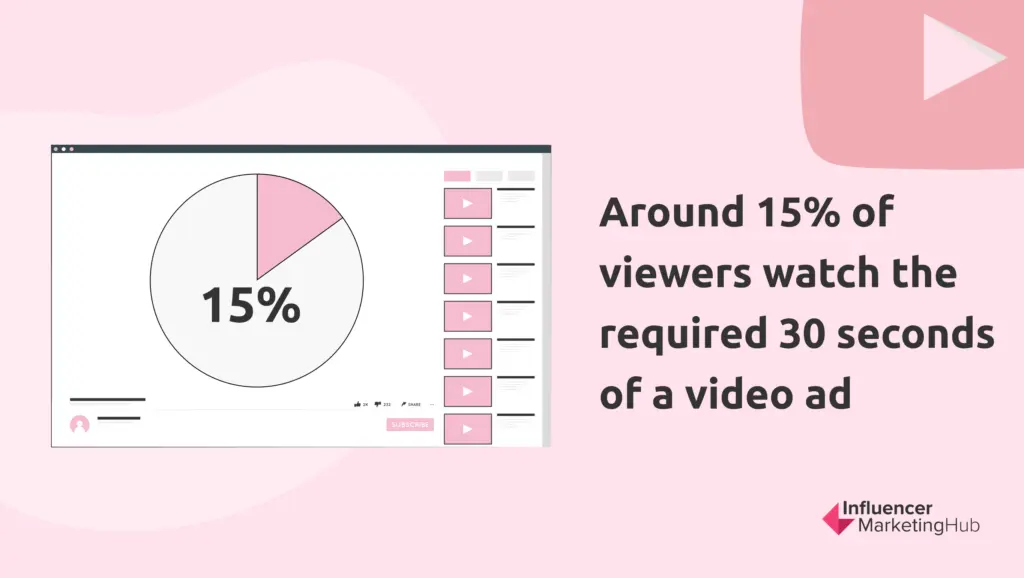In 2024, making money on YouTube has become more competitive and rewarding than ever. For senior-level marketing professionals, business development managers, and experienced digital marketers, understanding the nuances of YouTube’s monetization strategies is crucial for maximizing revenue. As the platform evolves, so do the methods for boosting views, engaging audiences, and driving financial success.
Whether you're looking to refine your existing strategy or seeking new, innovative approaches, this guide will provide you with advanced techniques to enhance your YouTube earnings. From optimizing content for maximum engagement to leveraging YouTube analytics, we’ll explore proven strategies that top creators use to monetize their channels effectively. Get ready to take your YouTube game to the next level and achieve significant financial success in the digital landscape.
The YouTube Partner Program
First things first, in order to make money by means of YouTube, you’ll need to get accepted to the YouTube Partner Program (YPP). Not only does the YPP enable revenue sharing from ads, but it also gives creators access to more resources and features offered by the platform such as access to a creator support team, Copyright Match Tool, and monetization features, like ad revenue.
With regards to ad revenue specifically, you’ll need to keep in mind that the advertising money is split between different parties. Google will pay $68 for every $100 an advertiser pays to the publisher. Also, if viewers skip the ad before 30 seconds, YouTube earns nothing which means that you won’t be paid. On average, around 15% of viewers watch the required 30 seconds of a video ad to qualify for payment.
In addition to ad revenue from video, display, and overlay ads, here are the other monetization features that you can use to earn money on the platform via this program:
- Recurring monthly payments made by members for special benefits
- Selling branded merch
- Highlighting fans’ messages in chat streams
- YouTube Premium subscriber’s subscription fee
One thing to keep in mind is that all these features mentioned above also have their own eligibility requirements that you’ll need to meet in addition to the view count and subscriber requirements.
If you reside in one of the countries where the program is available, you can apply.
- 4,000+ public watch hours in the past year
- 1,000+ subscribers
- A linked AdSense account
Exploring the YouTube Shorts Fund
If you don’t get accepted into the YouTube Partner Program, you can turn your focus to creating videos that are 60 seconds or shorter and check out the YouTube Shorts Fund. It’s a $100 million fund that rewards creators for creating original Shorts. Each month, YouTube will select thousands of creators and reward them with a Shorts bonus.
That being said, focusing on getting your YouTube channel up and running is really the way to go. It will take time, but by posting videos regularly that your target audience can resonate with, you’ll get there. Also, the advantage of uploading longer videos is that it offers you the ability to add more than one ad which means more opportunities to earn.
One Viral Video Vs Multiple Videos
When you think of YouTube views, one of the first thoughts that jump to mind is that your video needs to go viral for it to mean anything. This is not necessarily the case.
As a matter of fact, your YouTube channel can grow faster, if you focus on creating multiple videos instead of making it your goal to have one video go viral. The reason for this is that if your channel has more than one video, the platform will be able to recommend your other content to users who’ve watched your content which means that they’ll probably end up hitting that subscribe button too.
Also, if you have more videos, the chances that other viewers will find your videos are also better. Basically, having multiple videos just makes it easier for the platform to figure out the focus of your channel which makes it easier to suggest your content to relevant users. This also translates to more potential subscribers.
The trick is to see how many videos you can create in your first 60 days on the platform. This way, you’ll get a much better idea of what type of content interests your target audience the most. Ideally, you’ll want to create 30 videos in the first 60 days. After that, it’s still important to continue uploading new content consistently. We suggest that you upload at least two videos per week.
Views Vs Subscribers
While the YouTube Partner Program doesn’t specifically mention views in its list of requirements, it’s a key metric to keep in mind because how much money you make is based on the view count. That being said, two channels that get the same number of views might not necessarily receive the same payout.
The simple reason for this is that all channels don’t earn the same revenue per 1,000 views (RPM). Your niche will play a huge factor in determining what your RPM will be. For example, your revenue stream will be higher if most of your viewers come from the United States. Certain genres are also more saturated which means that advertisers have an easier time finding a successful channel on which to advertise ultimately meaning that they can afford to pay less.
To help you make more sense of it, let’s illustrate it like this. For example, if your RPM is $5 and you get 100,000 views per month, you can earn $500 per month.
So, while you’ll need to have a minimum number of subscribers to get into YouTube’s program so that you can start earning money, it’s actually the number of views that will impact your earning potential. That said, the more subscribers you have, the more views you’ll most likely get too. In other words, for the best results you should focus on gaining more subscribers and increasing your view count.
Real-life Examples of YouTube Earnings
Understanding how much YouTubers can earn from their content is essential for crafting an effective monetization strategy. Let's explore some real-life examples of YouTube channels that have managed to generate over 1 million views and see how much they earned.
vidIQ
The channel vidIQ, which focuses on YouTube growth and analytics, provides a detailed breakdown of their earnings from 1 million views. They reported making $3,231.42 from 1,035,307 views, with a CPM (Cost Per Mille) of $13.29. This means that while not every view was monetized, the high CPM allowed them to earn a significant amount from the monetized views they did receive.
Graham Stephan
Graham Stephan, a finance YouTuber, illustrates the lucrative potential of affiliate marketing combined with ad revenue. In one month, he earned $3,213 from 178,500 views on his yoga tutorial channel by optimizing his content for search and viewer engagement. His CPM for finance-related content is typically around $7, meaning he can earn about $7,000 per 1 million views. By diversifying his revenue streams through affiliate marketing and sponsorships, Graham significantly boosts his overall income.
These examples highlight that while ad revenue is a critical component of YouTube earnings, successful creators often rely on a mix of monetization methods, including sponsorships, affiliate marketing, and merchandise sales, to maximize their revenue potential. By understanding and leveraging these strategies, you can enhance your channel's profitability and achieve significant financial success on YouTube.
How Much Do the Top YouTube Earners Make?

YouTube Top Earners
What about the success stories of the top YouTubers? Just how much do they earn? According to YouTube money stats for the top channels, here are YouTube’s top earners and their estimated earnings:
- Kids Diana Show ($204M)
- Like Nastya Official ($199M)
- Jimmy Donaldson (Mr Beast)($124M)
- Ryan Kaji (Ryan's World) ($110M)
- Fernanfloo ($24M)
Wrapping Things Up
Understanding YouTube's diverse revenue streams is key to maximizing earnings. From ad revenue and affiliate marketing to sponsorships and merchandise sales, there are multiple avenues to explore. Consistently producing high-quality, engaging content is essential for growing your subscriber base and increasing your views, which in turn boosts your overall revenue potential.
In the meantime, you can also check out our YouTube Money Calculator. It might not be an enormous supercomputer, but it will give you estimated daily and monthly earnings and projected yearly earnings. No deep thought is needed. You just drag the slider and it will do the rest.
Frequently Asked Questions
How many views do you need to earn money on YouTube?
YouTube can be a very lucrative way to earn money, but you’ll first need to have at least 1,000 subscribers and 4,000 watched hours over the last 12 months before you can start thinking about monetizing your videos. Once you have reached this milestone, you can apply for the YouTube Partner Program and receive ads on your videos. According to Digiday, YouTube creators with more than 100,000 subscribers can earn about $2,000 per video.
How can I promote my YouTube channel?
Your first focus should be to create high-quality videos that your target audience will find relevant and be able to resonate with. Your second focus should be to grow your subscriber base by engaging with viewers and subscribers. Other ideas for marketing your YouTube channel are:
- Collaborating with other YouTube creators and influencers
- Running a contest where viewers get an entry by subscribing
- Using social media and email marketing
- Adding relevant hashtags
- Becoming a guest contributor
Where do you find new ideas for YouTube videos?
You can, for example, try a tool like BuzzSumo that has a social search feature for finding out what’s currently trending on YouTube. You can use YouTube’s auto-suggest feature. Not only is it free, but it’s also easy to use. You can type in your topic or keyword into the search field and the platform will automatically share content suggestions. You can also try Semrush, which has easy-to-use keyword research tools.
What are the best ways to monetize a YouTube channel besides ad revenue?
The best ways to monetize a YouTube channel besides ad revenue include securing sponsorship deals, selling branded merchandise, and utilizing affiliate marketing. Creators can also offer exclusive content through memberships or Patreon, and leverage crowdfunding platforms to fund special projects. Diversifying income streams helps stabilize earnings and increase overall profitability.
SUGGESTED
The Ultimate Guide to YouTube Monetization in 2025
Looking for how to monetize your YouTube channel? This guide will walk you through the...
How To Make Money On YouTube: 9 Ways Influencers Monetize Their Youtube Channels
How to Make Money on Youtube - Influencers make money from Youtube in various ways. We...
Youtube Marketing Report: Trends & Insights
Explore insights from top marketers... They remain confident in YouTube's growth focusing...





